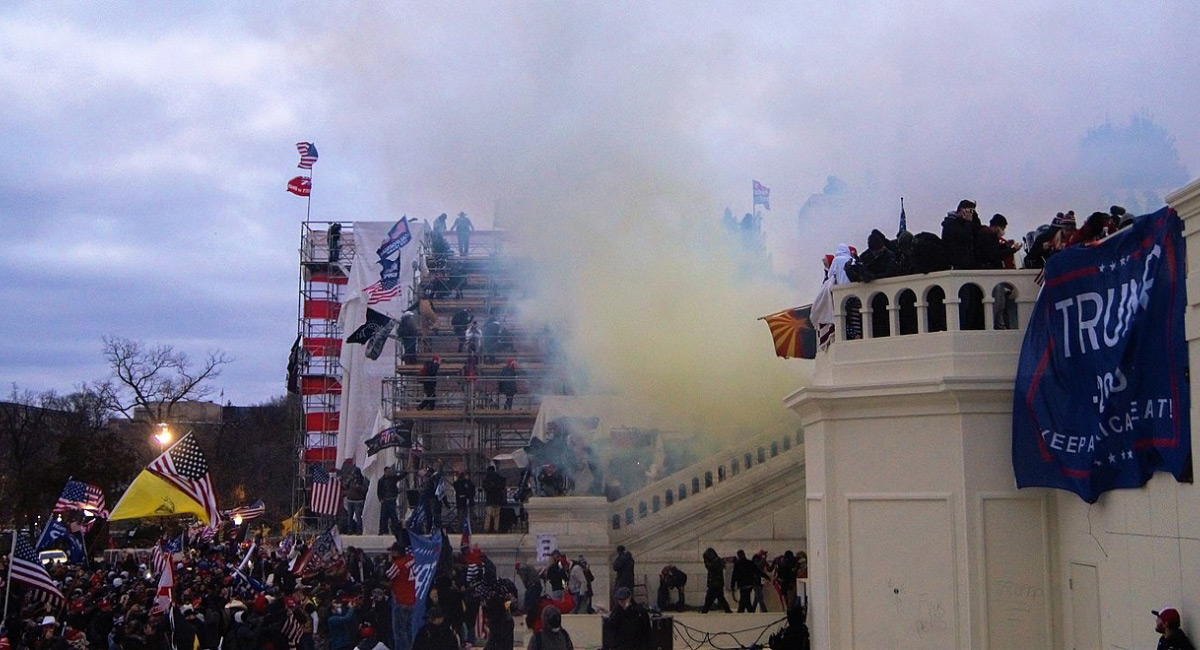The horrible assault on the U.S. Capitol culminated a couple of years of nasty acts of rioting and destruction fraying the fabric of the American Republic; previously, it was the senseless rioting, looting of businesses, and even the murder of individuals by police that shocked America. Where is E Pluribus Unum—Out of many, one? Why cannot Americans of different viewpoints, ethnic heritages, and the like get along with one another in a civil way?
How did it all come about? I believe that the universities are complicit, along with a broken system of “lower education,” in allowing this to happen. Universities have been sometimes enthusiastic accomplices in bringing about the fraying of the American fabric.
National unity comes from having a common identity, and that identity was created out of our past. American exceptionalism is real. The story of how a small number of migrants came to America in the 17th century and created what ultimately became the most affluent and powerful nation in the world is indeed one about which Americans should be proud. We should spend a lot of time teaching our youth about it (I am in my 55th year of teaching about the economic history of the United States). At the university level, that means requiring students to have some intimate familiarity with their past, typically by required courses in U.S. history, but also through courses in related subjects: learning about the nature of our government and its European origins, especially those leading to the values of the Enlightenment becoming inculcated into founders like Thomas Jefferson, etc.
As the National Association of Scholars (on whose board I serve), the American Council of Trustees and Alumni, and other groups remind us, required college courses enhancing our understanding of our evolution as a great nation have largely disappeared. We increasingly show a disdain for the past. We implicitly assume that the current generation is the fount of most wisdom, and that our Founders were a bunch of slave-owning (and therefore morally suspect) plutocrats out to maintain and enhance their own standing rather than promote the ideals contained in such foundational documents as the Declaration of Independence, the Constitution, and others.
Much recent anger culminating in the awful behavior exhibited at the U.S. Capitol arises from a feeling by many mostly modestly educated Americans that they are being looked down upon by college-educated cultural elites. While the outward face on the current dominant zeitgeist are personalities in the media, politics, and popular entertainment, they are aided and abetted by universities that arrogantly believe they are the fount of all that is wise and good—and demand high remuneration for their academic toils.
Originally, colleges were to teach virtue, including supporting religious truths found in the Ten Commandments and other religious foundational documents like the Christian Bible. Stealing, murdering, cheating on your spouse—these things were morally reprehensible, and in my youth many students attended “Chapel” at least once a week. At the time of the American Revolution, one-fourth of American college students were studying for the ministry.
Now universities celebrate hedonism, winking at rampant student sex, drug, and alcohol use. Implicitly, they tell their students “Pay our very high fees, and we will give you a piece of paper likely to land you a decent job.” The message is indeed somewhat more elaborate: for example, “additionally, we will let you drink, have sex, and give you collegiate ball-throwing contests maintaining your school spirit so you will contribute financially to us after you graduate.” The falsity of this, the sleaziness of it, contributes to the revolts of those on the “outs,” manifested in ANTIFA, Black Lives Matter, the Proud Boys, and the rise of Donald Trump. The decline in the quality of higher education as it has become an affluent ward of the state has sadly contributed to tattering the American ideal. The fact that surveys of college students show that large portions do not even know such foundational facts about the American experience as which half-century the Civil War occurred shows that the very glue is dissolving that bounds us together as Americans more than as Caucasians, Blacks, Presbyterians, Jews, Muslims, Gays, Democrats, Republicans, Men, or Women.
What to do? I will leave to others to propose short-run solutions in the body politic. But what should universities do now? I do think they need to return to the basics—partly by shedding many nonessential activities which absorb too much of their time, budgets, and attention, such as hiring umpteen racial bean counters (“diversity coordinators”) and expending vast amounts on ball-throwing contests. (Ironically, COVID-19 might help here, as university budgets are under attack). But the bigger problem regards instruction. Sure, we need to have students that are mathematically and scientifically literate, and it would be nice too if they learned about other cultures and languages. But they need, beginning in elementary school but reaching an apogee in college, a knowledge and appreciation of our American past and its European origins arising out of the Enlightenment, of what makes our nation special and a force for global good. They need to know, for example, why the Gettysburg Address was written and its majesty, why competitive markets and democratic processes based on the rule of law generally allocate resources and serve human welfare better than collectivist solutions, why the Ten Commandments are relevant and virtuous, and so forth.
Colleges today are failing in this task. The public is beginning to sense the vapidity of much of the collegiate experience. Enrollments are down nine consecutive years. Now is the time for an academic Renaissance. Will the leaders of our colleges continue to be beguiled and seduced by the Political Money Changers in the Temple called Washington? Or, will they return to teaching and promoting wisdom and beauty that arose over the centuries that led to the greatest nation ever created on the planet Earth?











